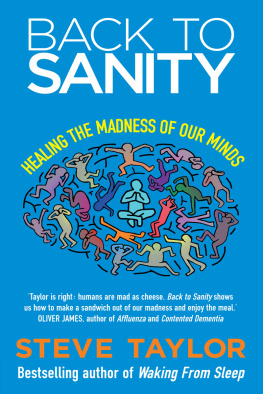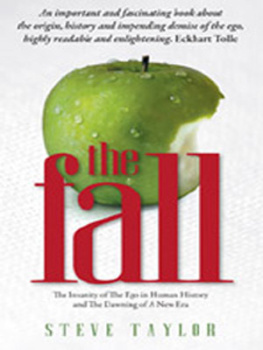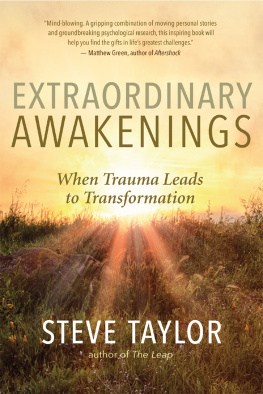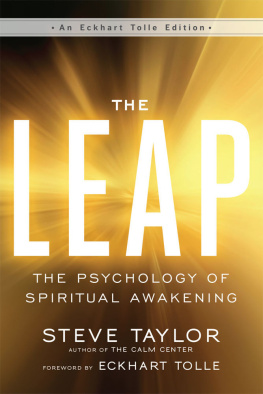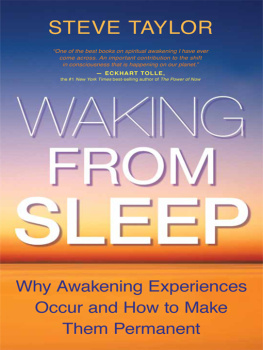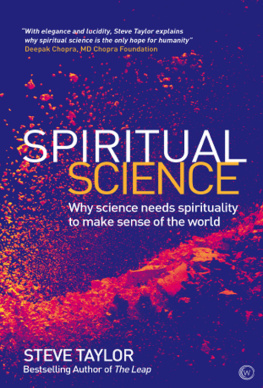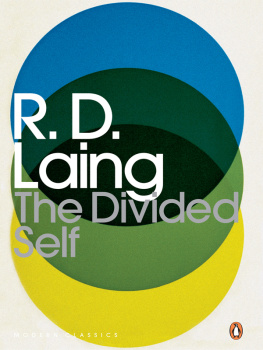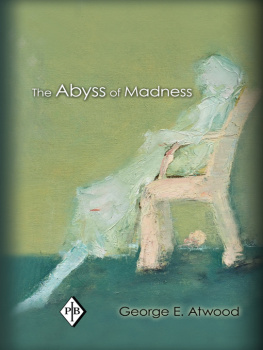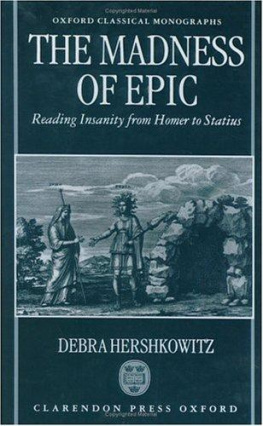First published and distributed in the United Kingdom by:
Hay House UK Ltd, 292B Kensal Rd, London W10 5BE. Tel.: (44) 20 8962 1230;
Fax: (44) 20 8962 1239. www.hayhouse.co.uk
Published and distributed in the United States of America by:
Hay House, Inc., PO Box 5100, Carlsbad, CA 92018-5100. Tel.: (1) 760 431 7695
or (800) 654 5126; Fax: (1) 760 431 6948 or (800) 650 5115.
www.hayhouse.com
Published and distributed in Australia by:
Hay House Australia Ltd, 18/36 Ralph St, Alexandria NSW 2015.
Tel.: (61) 2 9669 4299; Fax: (61) 2 9669 4144. www.hayhouse.com.au
Published and distributed in the Republic of South Africa by:
Hay House SA (Pty), Ltd, PO Box 990, Witkoppen 2068.
Tel./Fax: (27) 11 467 8904. www.hayhouse.co.za
Published and distributed in India by:
Hay House Publishers India, Muskaan Complex, Plot No.3, B-2, Vasant Kunj,
New Delhi 110 070. Tel.: (91) 11 4176 1620; Fax: (91) 11 4176 1630.
www.hayhouse.co.in
Distributed in Canada by:
Raincoast, 9050 Shaughnessy St, Vancouver, BC V6P 6E5.
Tel.: (1) 604 323 7100; Fax: (1) 604 323 2600
Text Steve Taylor, 2012
The moral rights of the author have been asserted.
All rights reserved. No part of this book may be reproduced by any mechanical, photographic or electronic process, or in the form of a phonographic recording; nor may it be stored in a retrieval system, transmitted or otherwise be copied for public or private use, other than for fair use as brief quotations embodied in articles and reviews, without prior written permission of the publisher.
The information given in this book should not be treated as a substitute for professional medical advice; always consult a medical practitioner. Any use of information in this book is at the readers discretion and risk. Neither the author nor the publisher can be held responsible for any loss, claim or damage arising out of the use, or misuse, or the suggestions made or the failure to take medical advice.
A catalogue record for this book is available from the British Library.
ISBN 978-1-84850-547-6 in print
ISBN 978-1-84850-874-3 in Mobipocket format
ISBN 978-1-84850-875-0 in ePub format
To Bill,
who may live to see
a saner world.
S ince Europeans began exploring and colonizing the world in the sixteenth century, they have curiously observed indigenous peoples and written accounts of their cultures. Modern anthropologists still frequently travel to remote corners of the world to observe and document tribes that havent yet been touched by globalization, and still follow traditional lifestyles.
But what about the other way round? What have indigenous peoples made of the developed peoples who have studied them, and whose culture has conquered theirs? Or to put it more abstractly, if a member of a remote tribe wrote an anthropological study of us, what would it say?
In 1932, the psychologist Carl Jung met Native American Chief Mountain Lake in New Mexico. When Jung asked him what he thought of the European people who had conquered his country, he gave a damning assessment: The whites always want something. They are always uneasy and restless. We do not know what they want. We do not understand them. We think that they are all mad.
Other indigenous peoples have shared Mountain Lakes bemusement. Many believed that the Europeans lust for possessions was a kind of madness. As the Sioux chief Sitting
In a similar way, many were shocked by the Europeans lack of connection to and reverence for nature. As one of the most acute observers of the differences between the European and Indian worldviews, Chief Luther Standing Bear, wrote:
Indian faith sought the harmony of man with his surroundings; the other sought the dominance of surroundings For [the Indian] the world was full of beauty, for [the white man] it was a place of sin and ugliness to be endured until he went to another world.
In other words, indigenous peoples seem to think that there is something wrong with us, even that we are mad. An indigenous anthropologist who studied our history would find a massive amount of further evidence for this too: thousands of years of constant warfare, massive inequalities of wealth and power, the brutal oppression of women, of other classes and castes, endless brutality, violence, and greed and then, in recent decades, the suicidal destruction of our planets life support systems. He or she would also look at the massive inequalities that blight the world today, where the three richest people in the world are wealthier than the 48 poorest countries combined, and where almost 800 million people are malnourished while millions of others are obese because they have too much food.
What could be more insane than this?
Our psychological disorder
This book is my attempt to understand this human madness. Why do we find it impossible to live in harmony with each other, with the natural world, or even with our own selves? Why is human history an endless, depressing saga of warfare, conflict, and oppression? Why do we seem impelled to destroy our environment, and hence ourselves as a species? Or, on a more psychological level, why do we suffer from the constant restlessness and unease of which Mountain Lake spoke? Why is it that many of us are driven to accumulate more and more wealth, status, and success, without any evidence that they provide us with contentment and fulfillment? Why, when we achieve our goals, do we often only feel a short period of satisfaction, before restlessness emerges again, filling us with a desire to achieve even more?
Our basic problem, I suggest in this book, is that there really is something wrong with our minds. We suffer from a basic psychological disorder that is the source of our dysfunctional behavior, both as individuals and as a species. Were all slightly mad but because the madness is so intrinsic to us, were not aware of it. I call this disorder humania, as in human madness. (I sometimes refer to it as ego-madness too, since as well see later the disorder is the result of the malfunctioning and the mal-development of the ego. By the ego I mean our sense of being an I within our own mental space, the self-system that gives us a sense of being an individual, with our thoughts and experiences.)
The Diagnostic and Statistical Manual of Mental Disorders, or DSM the standard manual used by American psychiatrists defines a psychological or mental disorder as
Humania is too omnipresent and taken for granted to be seen as clinically significant, but its certainly the cause of distress and suffering. It means that the normal state of our minds is one of discord. The first noble truth of Buddhism is that life is suffering, and this suffering begins in our minds. This inner suffering or psychological discord, as I refer to it is so normal to us that we dont realize its there, like a background noise youre so accustomed to that you dont hear anymore. But it has massive consequences. It means that we have to keep our attention focused outside ourselves, and fill our lives with constant activity and distraction, like addicts needing a constant supply of a drug. It makes it impossible for us to find contentment. It causes discord in our relationships. It impels us to search for wellbeing and fulfillment outside ourselves, in wealth, success, and power. Its even responsible for reasons that Ill explain later for much of the conflict, oppression, and brutality that fill human history.
But despite its devastating effects, humania is neither deep-rooted nor permanent. In fact it only exists on a superficial layer of the mind. All of us regularly have moments when our normal psychological discord fades away and we experience a sense of ease, wellbeing and harmony. In these moments were free of the pressure to keep busy, and the need for stimulation and acquisition we rest at ease within ourselves and within the present moment.
Next page
